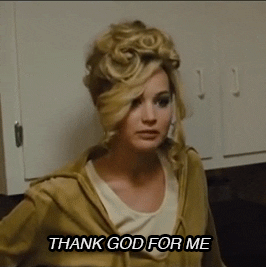Dear Reader
This week we’re about work in flux, the unsettling and uncertain nature of workspaces and tools…
Flux-ible working
The image at the top of the page feels like this moment in our work culture. Multiple paths heading into the distance, each apparently only slightly different from the the other at the start, they will lead to very different versions of the future.
It was taken with an app simulating the Lomography Supersampler camera, a descendant of the Soviet Lomo LCA camera, that would take four tall, narrow images on one frame of film in quick succession, in a co-working space in Brighton’s Kemptown district, Co-Marketing in the delightfully designed and named Yolk House.
You can see the hope and uncertainty of where we work in the office spaces of even this modest metropolis of Brighton. Walk past the big corporate offices of finance and tech companies and you mainly see ranks of well-appointed but empty desks; and while nearby cafés and co-working offices are often bustling with nomadic workers and meetings, they aren’t consistently so – they fluctuate in sync with business sentiment and the confidence of small businesses and expense policies of larger companies whose remote workers like to use them.
Talking to entrepreneurs and one-person contractors, no one seems to know what the economy will do in the next six months nor, by extension what their fate will be. What their work will be or where they will be doing it. Uncertainty overshadows and maybe is playing part in the mass re-shaping of what the places of work for the formerly-office based worker will look like.
Meanwhile for other service workers, the uncertainty affects their living daily. In a small, empty Pret in central London at midday on Friday, I saw its manager telling her staff that sales were 15% down that day and unless more customers came in soon a couple of them would be sent home at 1 p.m. Was that OK with them? Glum assent was given. A couple of hours less pay this week.
Too many tools
In terms of what we work with – our tools – something was already very wrong before AI even showed up this year. “Productivity tools” have a funny way of making us more productive in one way and much, much less productive in others.
Oliver Burkeman spotted one reason in his modern classic about time management: Four Thousand Weeks:
The technologies we use to try to ‘get on top of everything’ always fail us, in the end, because they increase the size of the ‘everything’ of which we’re trying to get on top.
Productivity is a trap, says Burkeman. Technology tightens its grip. The fear we see in a lot of writing and reactions to the generative AI revolution is real and justified, even if panic and overreaction is not. We're in the middle of one of the explosive evolutionary moments in the history of technology and tools -- when an idea becomes a technology and as we learn to use it it changes the world.
How we work is as much in flux as where we work.
This university lecturer’s Tweet sums up why work is so hard sometimes and we have to work despite technology as much as with it:
Each layer of new innovations comes with assumptions about efficiency and their use that are not realistic. The digitalised workflows are dumped on the process of work rather than designed around them.
Lists of new AI-powered or enhanced apps that come out are so long that it would be a full-time job to consider most of them, let alone all. And experimenting with how they fit into work will likely be left to the individual, trying to optimise for work in systems and organisations that may not adapt quickly enough for the new power-ups to be useful.
With algorithmically-enhanced serendipity, my Readwise app presented a passage from Atul Gawande’s The Checklist Manifesto that speaks to this, talking about the “burden of knowledge” that means we need simple frameworks (checklists) to take the right action or make a good decision. For many, the challenge when half-formed superpowers are being given to everyone who wants them by ChatGPT and its peers, feels like a “burden of tools” that we have to carry and learn while executing our day jobs.
Here, then, is our situation at the start of the twenty-first century: We have accumulated stupendous know-how. We have put it in the hands of some of the most highly trained, highly skilled, and hardworking people in our society. And, with it, they have indeed accomplished extraordinary things. Nonetheless, that know-how is often unmanageable. Avoidable failures are common and persistent, not to mention demoralizing and frustrating, across many fields-_from medicine to finance, business to government. And the reason is increasingly evident: the volume and complexity of what we know has exceeded our individual ability to deliver its benefits correctly, safely, or reliably. Knowledge has both saved us and burdened us.
That means we need a different strategy for overcoming failure, one that builds on experience and takes advantage of the knowledge people have but somehow also makes up for our inevitable human inadequacies. And there is such a strategy though it will seem almost ridiculous in its simplicity, maybe even crazy to those of us who have spent years carefully developing ever more advanced skills and technologies. It is a checklist.
We need to find simple rules and ways of coping with the burden of tools. If we don’t find ways to make tools serve us, we end up serving them, servants to blind gods that simulate sentience.
AI creative fun of the week
Fantastic use of generative AI image-creation: The World Cup shot by ten film directors. Spike Lee is my favourite.
“Thank god for me!”, says coffee…
Coffee really is good for you, explains this Twitter thread.



AI tool of the week – watches long videos for you
This week I found a new app -- you paste a link to a long YouTube video and it returns a description of the video, a kind of report that describes the points being made and when. Simple, useful and mind blowing all at once. Here’s a screenshot of the beginning of a lecture by Richard Feynman.
Weird AI of the week: an interview with the author of Gulliver’s travels
Tyler Cowan experiments with using generative AI to create answers that Jonathan Swift might give to questions. Eery, nerdy fun.
Thanks to Mr J. Madron Guy for the tip.
Stop using AI!
FT reported on an open letter saying STOP the AI race:
An [open letter](https://futureoflife.org/open-letter/pause-giant-ai-experiments/), published on Wednesday by the Future of Life
Institute, a non-profit campaign group, had been signed by more than 1,100 individuals from across academia and the tech industry within hours of its publication.
I mean, damn, they could be right. But if we can’t stop carboning ourselves to death for the sake of warm holidays and disposable toys from the other side of the planet, I can see this species getting its act together to put AI back in the box.
More next week…
That’s all for now. If you like your Antonym with your Sunday croissant rather than your Sunday evening cocktail, we should be back to normal scheduling next week.
If you’re not happy with this week’s service please feel free to have a free year’s subscription on us, and one for a friend.
Antony











As ever, on-point. Zeitgeist Mayfield.